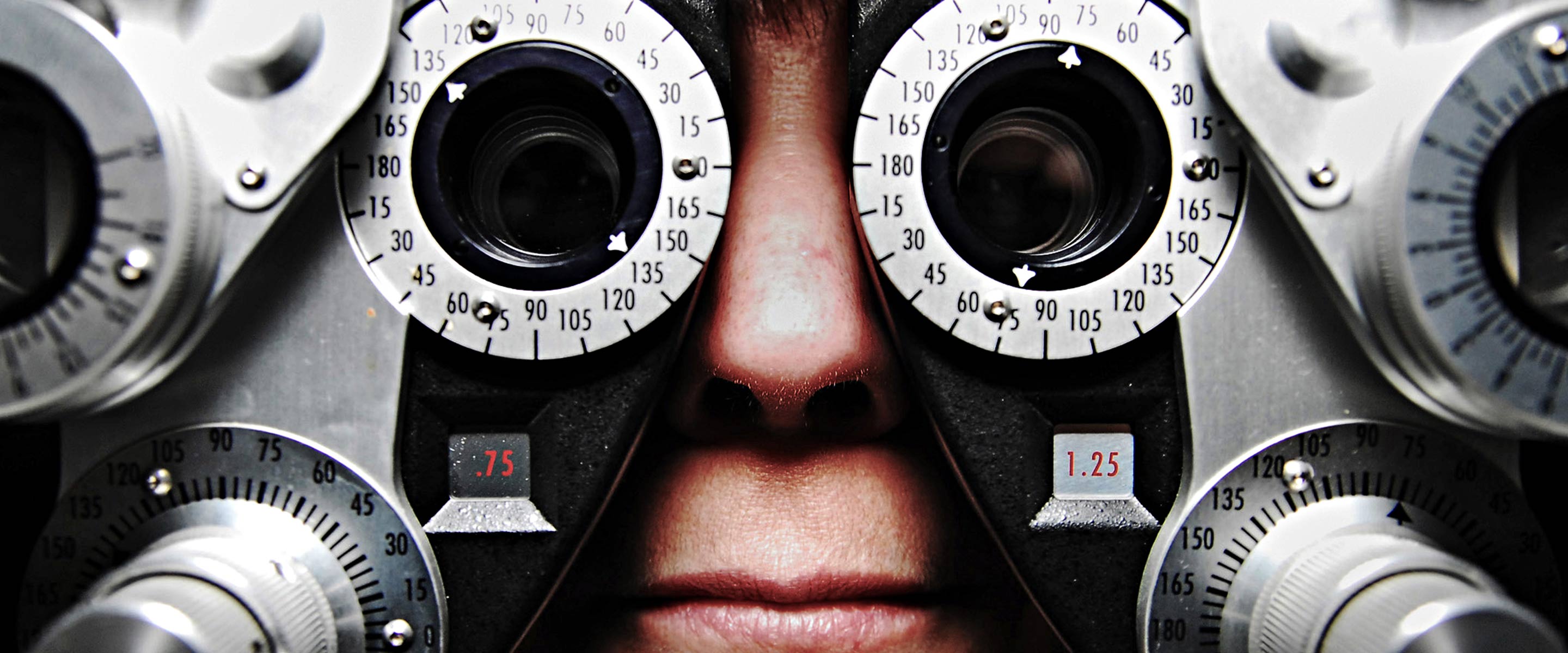More Information
Responsibilities
As an Optometrist and Officer in the Navy Medical Service Corps, you will serve the routine and acute eye-care needs of military personnel, their families and those in need around the globe. Your duties may include:
- Refractive services, such as refractive surgery and prescribing spectacles or contact lenses
- Ocular pathology treatment
- Surgical co-management
- Subspecialty focuses such as low vision, traumatic brain injury rehab, specialty contact lenses and more
Work Environment
Navy Optometrists may serve at any one of more than 250 Navy and medical facilities around the globe, from Hawaii to Japan, Germany to Guam, and Washington, D.C., to Washington state. As a Navy Optometrist, you could work at one of the highly acclaimed National Naval Medical Centers in Bethesda, MD, Portsmouth, VA, or San Diego, CA. Or you could provide medical support aboard one of two dedicated hospital ships—the USNS Comfort and USNS Mercy.
Training & Advancement
Upon graduation from medical school, those pursuing an Optometrist position are required to attend Officer Development School (ODS) in Newport, RI. ODS is a five-week program that provides a comprehensive and intense introduction to the responsibilities of Navy Staff Corps Officers. Here they learn about the military structure of the U.S. Navy, its rich history of traditions and customs, leadership development and military etiquette.
Once that training is complete, you will learn the ins and outs of life as a Optometrist and receive your first assignment. Promotion opportunities are regularly available but competitive and based on performance.
Post-Service Opportunities
It’s also important to note that specialized training received and work experience gained in the course of service can lead to valuable credentialing and occupational opportunities in related fields.
Education Opportunities
Wherever you are in your professional career, the Navy can help ease your financial burdens and advance your career with generous financial assistance and continuing education programs. Opportunities for further education within this platform include:
- Navy College Program
- VOLED Assistance Center
- VOLED Region Advisors
- The Naval Postgraduate School (NPS)
- Navy War College (NWC)
- USAF Air University Air Command and Staff College
Through the Navy Health Professions Loan Repayment Program (HPLRP), you may be eligible to receive financial assistance to pay down the cost of your graduate education.
Qualifications & Requirements
A degree from a four-year college or university is a minimum educational requirement to become a Commissioned Officer. You must also attend Officer Training. There may be exceptions to the degree requirements based on extensive service experience. Additional qualifications include:
- U.S. Citizen between the ages of 21 and 41
- Currently licensed and practicing in the U.S. (new graduates must obtain a license within one year of beginning Active Duty service)
- Graduate of an approved school
- Willing to serve a minimum of three years Active Duty
- In good physical condition and able to pass a full medical examination
General qualifications may vary depending upon whether you’re currently serving, whether you’ve served before or whether you’ve never served before.
Part-Time Opportunities
Serving part-time as a Navy Reserve Officer, your duties will be carried out during your scheduled drilling and training periods. During monthly drilling, Optometrists in the Navy Reserve typically work at a location close to their homes. This gives you the flexibility to expand your experience in the Navy without compromising your civilian practice at home.
For annual training, you may serve anywhere in the world, whether at sea, in hospitals stateside, or in bases and camps in countries around the world.
Take a moment to learn more about the general roles and responsibilities of Navy Reserve Sailors.
Most of what you do in the Navy Reserve is considered training. The basic Navy Reserve commitment involves training a minimum of one weekend a month (referred to as drilling) and two weeks a year (referred to as Annual Training) – or the equivalent.
Optometrists in the Navy Reserve serve in an Officer role. Before receiving the ongoing professional training that comes with this job, initial training requirements must first be met.
For current or former Navy Officers (NAVET): Prior experience satisfies the initial leadership training requirement, so you will not need to go through Officer Training again.
For current or former Officers of military branches other than the Navy (OSVET), as well as for Officer candidates without prior military experience: Officer candidates are required to attend Officer Development School (ODS) in Newport, RI. ODS is a five-week program that provides a comprehensive and intense introduction to the responsibilities of Navy Staff Corps Officers. Officers who previously held a commission in another United States Military Service, National Oceanic and Atmospheric Administration, Public Health Service, or United States Coast Guard are exempt from attending ODS or LDO/CWO Academy.
With flexible training options, Navy Reserve Officers can comfortably balance civilian and military schedules. You can maintain your own life and your own practice – enriching both with the rewarding work you do for others.
The Navy offers you a truly diverse variety of academic, clinical and operational settings in which to practice. In some cases, you can even work in the same civilian setting you work in now. What’s more, you will enjoy an unrivaled sense of pride and fulfillment known only to those who serve.
As a Reserve Optometrist Officer, you’ll receive a first-rate benefits package including your choice of either $50,000 per year in specialty pay, up to $250,000 in medical school loan repayment assistance, or an immediate one-time sign-on bonus of up to $10,000. Reserve Sailors joining the Navy as residents can get up to $250,000 in school loan repayment assistance as well as a monthly stipend, dependent upon service commitment. Request a medical recruiter contact you for complete offer details.
































































































































